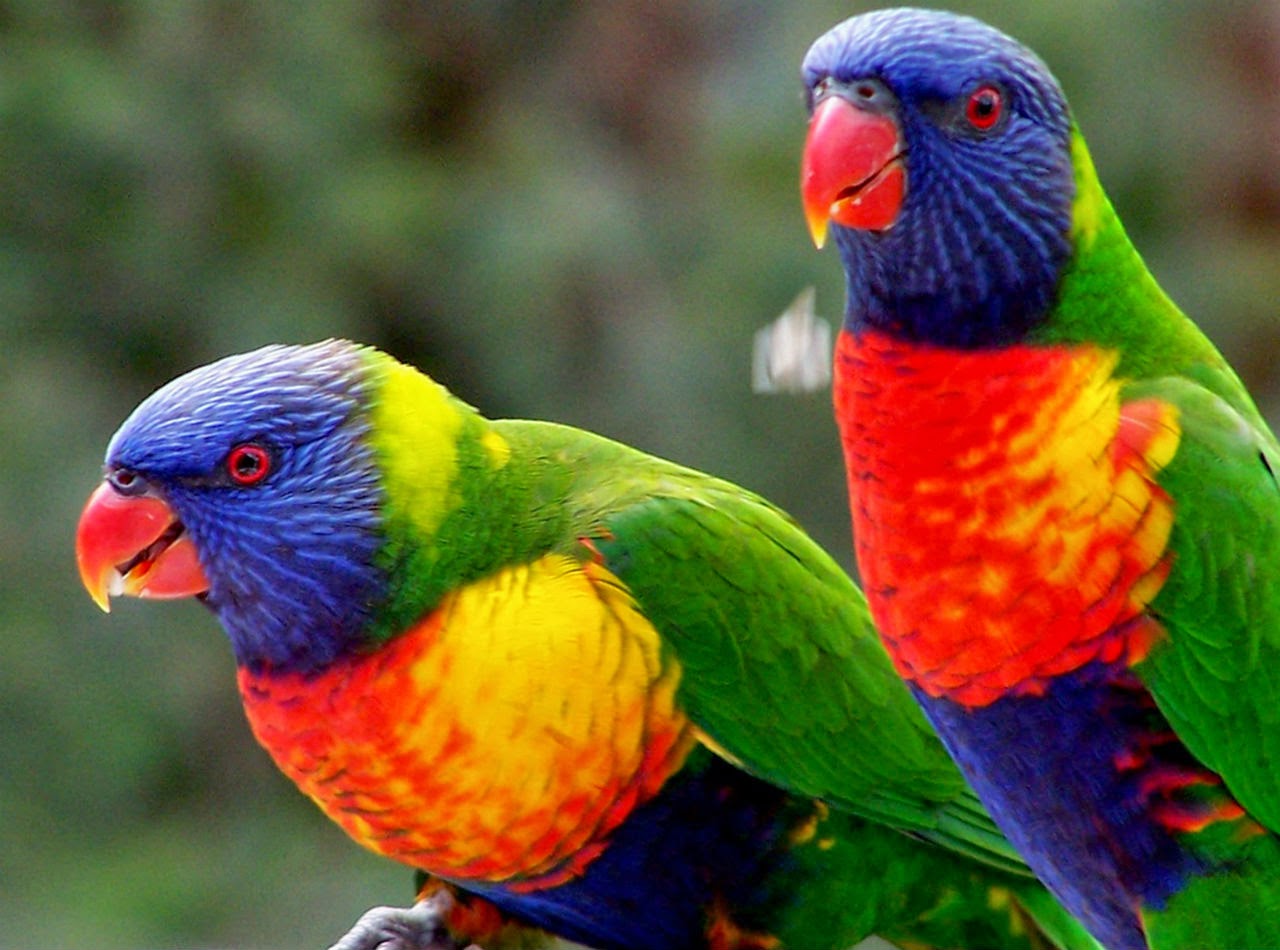Colorful tropical birds are nature's masterpieces, captivating our hearts and imaginations with their vibrant plumage and enchanting songs. These avian wonders are more than just a feast for the eyes; they play crucial roles in their ecosystems, contributing to pollination, seed dispersal, and maintaining ecological balance. Whether fluttering through lush rainforests or perched on the branches of exotic trees, colorful tropical birds bring a splash of life to every corner of their habitats.
The world of colorful tropical birds is filled with a vast array of species, each boasting unique colors, patterns, and behaviors. From the flamboyant feathers of the macaw to the delicate grace of the hummingbird, these birds exhibit an astonishing diversity that reflects the richness of the tropical environment. Birdwatchers and nature enthusiasts alike are drawn to these stunning creatures, eager to catch a glimpse of their iridescent colors and hear their melodious calls echoing through the canopy.
As we explore the fascinating realm of colorful tropical birds, we will delve into their habitats, behaviors, and the conservation efforts aimed at protecting these extraordinary species. Join us on this vibrant journey to learn more about the stunning world of tropical birds and the vital roles they play in our ecosystems.
What Makes Colorful Tropical Birds So Special?
Colorful tropical birds are renowned for their striking appearances and unique adaptations that set them apart from their counterparts in temperate regions. Their vibrant colors can serve several purposes, including attracting mates, camouflaging against predators, and signaling warnings to potential threats. These birds often exhibit fascinating behaviors such as elaborate courtship displays, intricate songs, and social interactions that further enhance their appeal.
Which Species Are the Most Colorful Tropical Birds?
Some of the most iconic colorful tropical birds include:
- Macaws: Renowned for their brilliant blue, red, and yellow feathers, macaws are large parrots native to Central and South America.
- Scarlet Tanager: With its striking red plumage and black wings, the scarlet tanager is a true gem of the tropical forests.
- Hummingbirds: These tiny birds boast iridescent colors and are essential pollinators in many tropical ecosystems.
- Quetzals: Celebrated for their vibrant green and red feathers, quetzals are often seen as symbols of freedom and beauty.
How Do Colorful Tropical Birds Adapt to Their Environment?
The adaptations of colorful tropical birds are remarkable. Their feathers often feature bright colors that can help them blend into the vibrant environment of the rainforest, making it harder for predators to spot them. Additionally, their beaks are often specially adapted to their diets, allowing them to consume a variety of fruits, nectar, and insects. This adaptability contributes to their survival in the ever-changing and competitive tropical ecosystem.
Where Can You Find Colorful Tropical Birds?
Colorful tropical birds are found primarily in tropical and subtropical regions around the world. Major hotspots for birdwatching include:
- The Amazon Rainforest: Home to an astounding variety of bird species, including toucans, parrots, and hummingbirds.
- Central America: Countries like Costa Rica and Panama are known for their rich avian diversity.
- The Caribbean Islands: Many islands boast unique bird species, including the endangered Puerto Rican parrot.
What Role Do Colorful Tropical Birds Play in Their Ecosystem?
Colorful tropical birds are crucial to their ecosystems. They contribute to pollination and seed dispersal, which helps maintain plant diversity and forest health. Additionally, they serve as indicators of environmental health; their presence often signifies a balanced ecosystem. Protecting these birds is essential for preserving the intricate web of life that depends on them.
How Can We Conserve Colorful Tropical Birds?
Conservation efforts aimed at protecting colorful tropical birds include:
- Habitat Protection: Preserving tropical forests and natural habitats is vital for the survival of these species.
- Community Engagement: Involving local communities in conservation efforts can lead to more effective protection strategies.
- Research and Monitoring: Scientific studies help us understand population trends and the impacts of environmental changes on these birds.
Conclusion: The Future of Colorful Tropical Birds
Colorful tropical birds are not just mesmerizing creatures that brighten our world; they are integral to the health of their ecosystems. As we continue to learn more about these incredible birds, it becomes increasingly clear that protecting their habitats and ensuring their survival is paramount. By raising awareness and supporting conservation efforts, we can help safeguard the future of colorful tropical birds for generations to come.
Exploring The Enigmatic Universe Of C's World
Unveiling The Mystique Of Felix From Twilight
Discovering The Benefits Of We Feed Raw: A Guide To Raw Pet Nutrition


